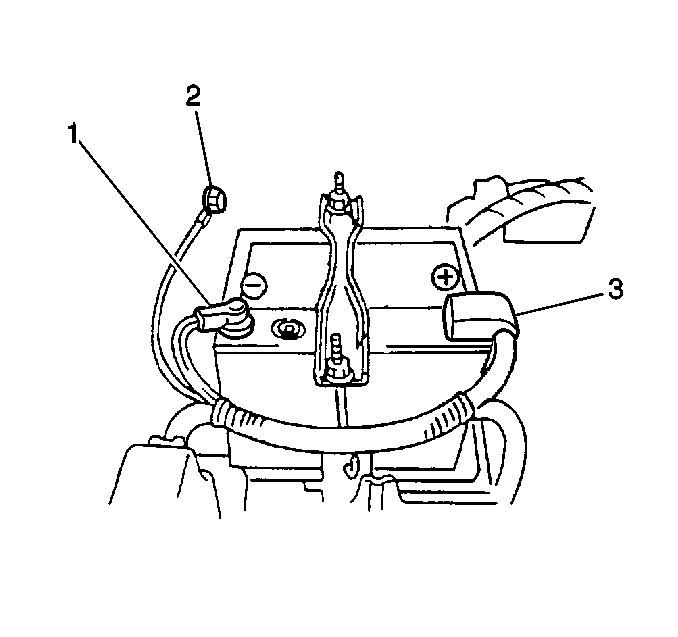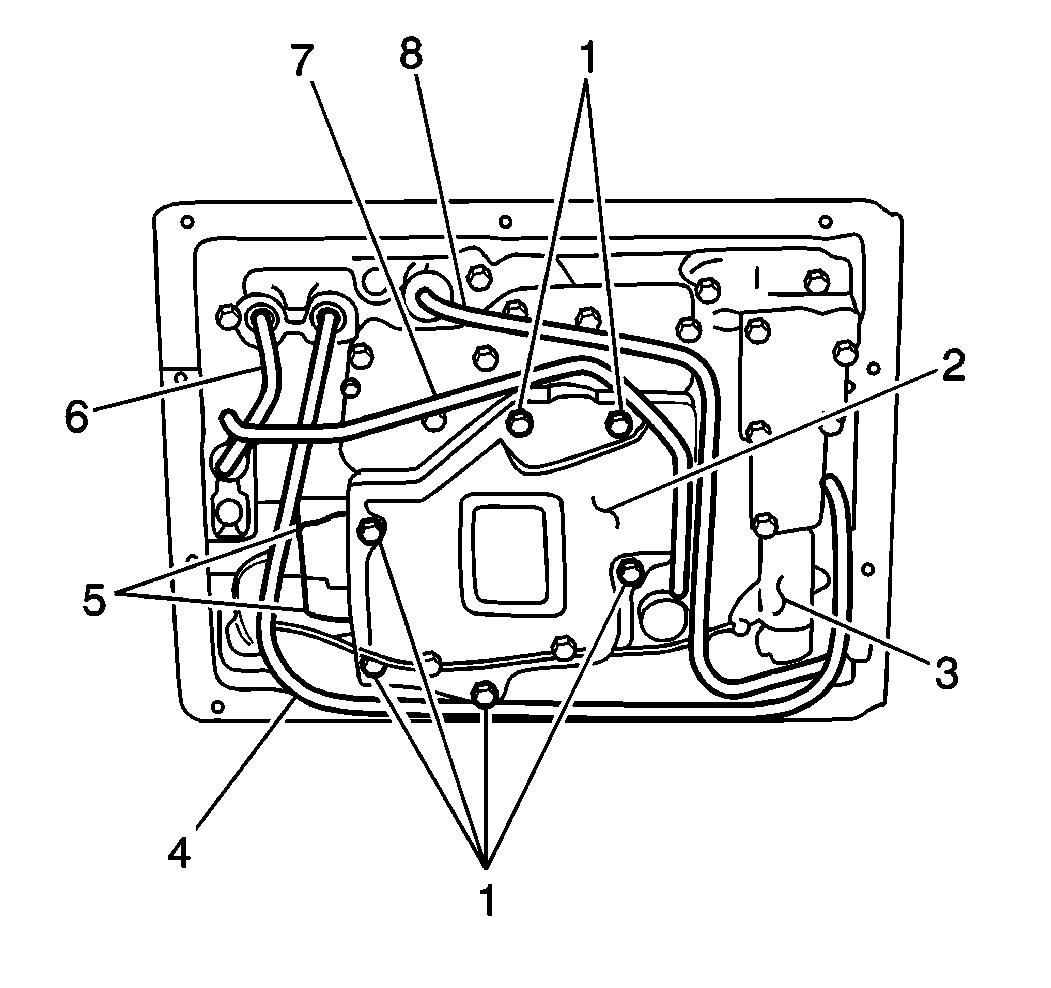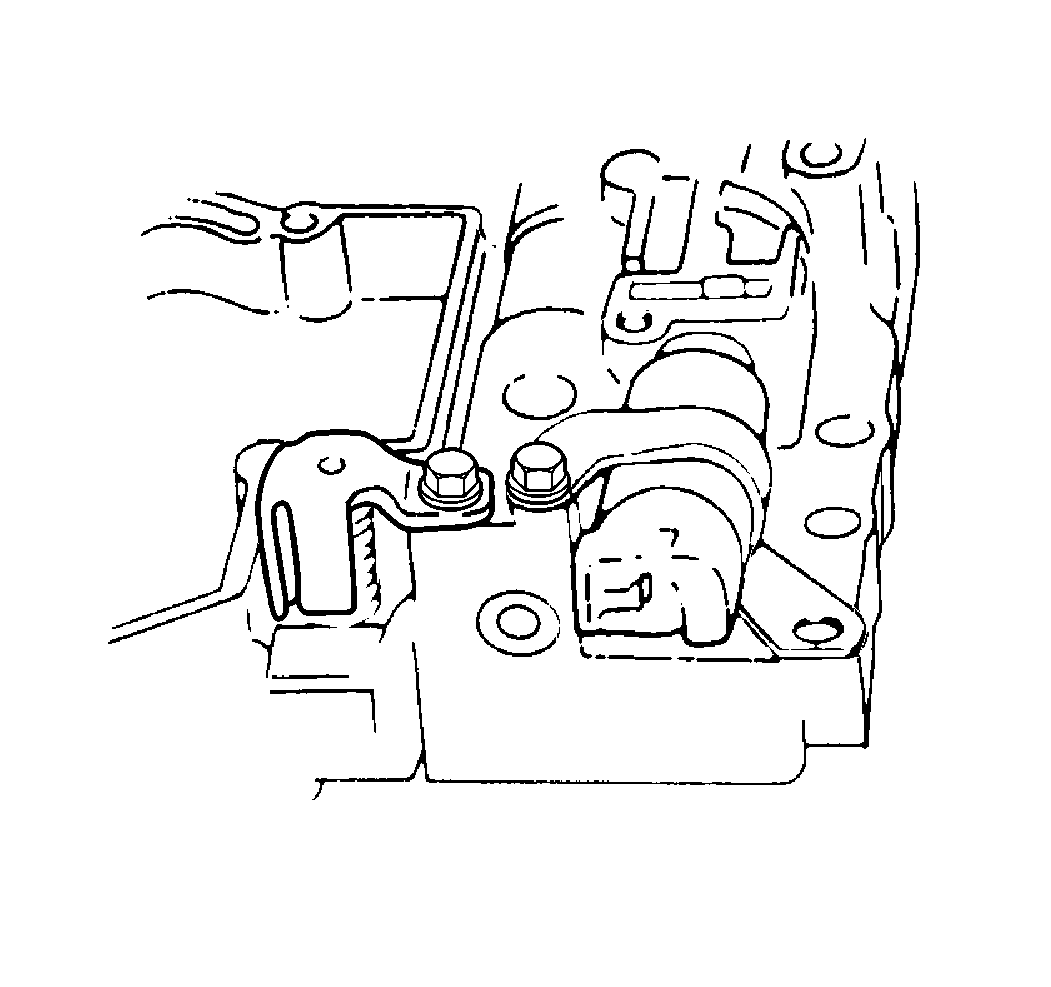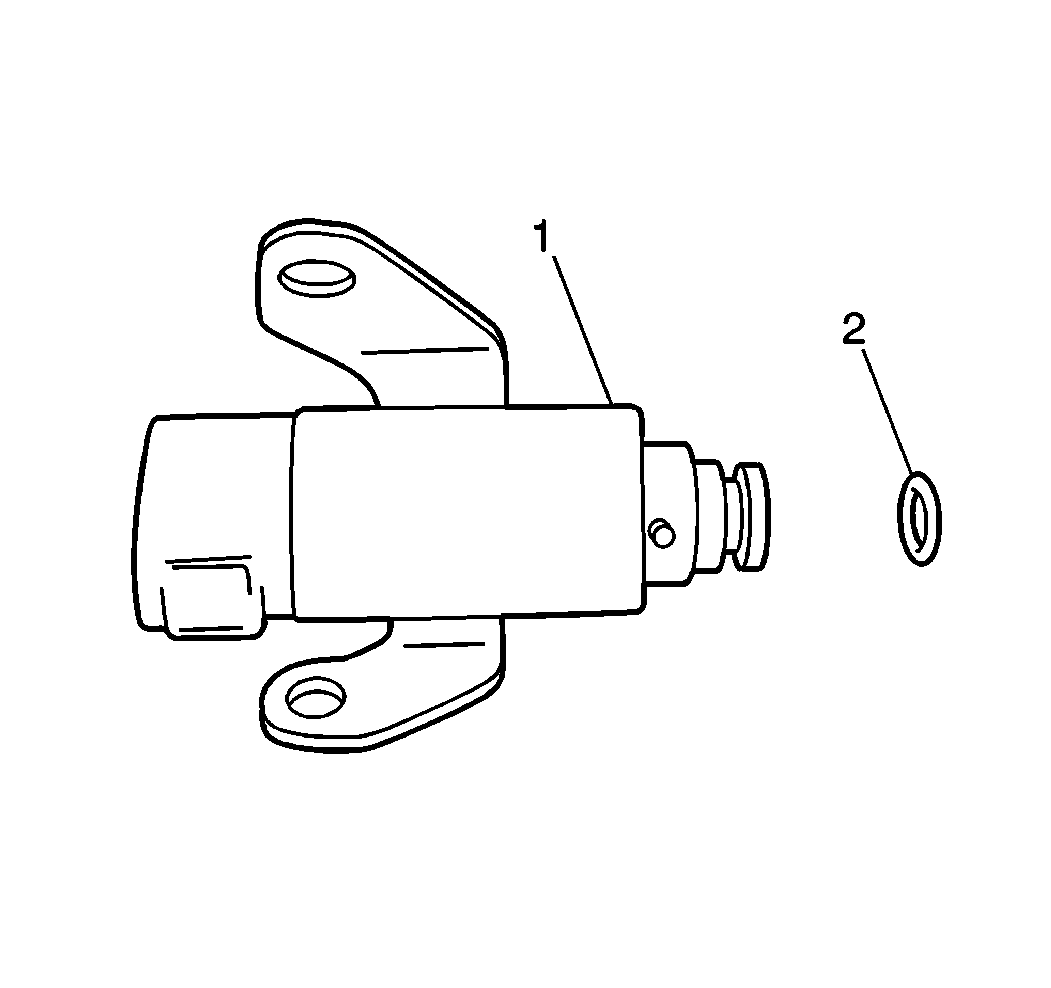Removal Procedure

Caution: Unless directed otherwise, the ignition and start switch must be in the OFF or LOCK position, and all electrical loads must be OFF before servicing
any electrical component. Disconnect the negative battery cable to prevent an electrical spark should a tool or equipment come in contact with an exposed electrical terminal. Failure to follow these precautions may result in personal injury and/or damage to
the vehicle or its components.
- Disconnect
the negative battery cable (1).
- Raise the vehicle. Support the vehicle. Refer to
Lifting and Jacking the Vehicle
in General Information.
- Remove the front propeller shaft. Refer to
Front Propeller Shaft Replacement
.
- Remove the drain pan. Refer to
Automatic Transmission Fluid and Filter Replacement
.
- Remove the valve body. Refer to
Valve Body and Accumulator Pistons Removal
.

- Remove the 3 fluid pipes in the following order: 7, 4 and 8.

- Remove the electrical
connector from the torque converter clutch (TCC) solenoid.
- Remove the 2 bolts from the lower valve body.

- Remove the TCC solenoid (1)
from the lower valve body.
- Inspect the TCC solenoid pipe O-ring (2) for cuts and other
damage. Replace the O-ring as necessary.
- For a complete schematic of the TCC system, refer to
Automatic Transmission Controls Schematics
.
Installation Procedure

- Install the new TCC solenoid
gasket and TCC Solenoid (1) onto the lower valve body.
Notice: Use the correct fastener in the correct location. Replacement fasteners
must be the correct part number for that application. Fasteners requiring
replacement or fasteners requiring the use of thread locking compound or sealant
are identified in the service procedure. Do not use paints, lubricants, or
corrosion inhibitors on fasteners or fastener joint surfaces unless specified.
These coatings affect fastener torque and joint clamping force and may damage
the fastener. Use the correct tightening sequence and specifications when
installing fasteners in order to avoid damage to parts and systems.
- Secure the TCC solenoid
onto the lower valve body with the 2 bolts.
Tighten
Tighten the TCC solenoid bolts to 5 N·m (44 lb in).
- Install the electrical connector to the TCC solenoid.

- Apply a thin coat of automatic transmission fluid to the fluid pipe
O-rings.
- Install the fluid pipes in the following order 8, 4 and 7.
- Install the valve body. Refer to
Valve Body and Accumulator Pistons Removal
.
- Install the drain pan. Refer to
Automatic Transmission Fluid and Filter Replacement
.
- Install the front propeller shaft. Refer to
Front Propeller Shaft Replacement
.
- Lower the vehicle.
- Connect the negative (-) battery cable.
- Refill the transmission as necessary using the following procedure.
| 11.1. | Place the vehicle on a level surface |
| 11.2. | Remove the fluid level indicator |
| 11.3. | Add approximately 1.5 liters (1.6 qts) or Dexron®-III
automatic transmission fluid GM P/N 12346143 (Canadian P/N 10952622),
or the equivalent, into the fluid filler tube. |
| 11.4. | Install the fluid level indicator into the fluid filler tube. |
| 11.5. | Apply the parking brake and block the vehicle wheels. |
| 11.6. | With the selector lever in the PARK position, start the engine.
Do not race the engine. |
| 11.7. | Run the engine at idle and move the selector lever through each
range and return to the PARK position. |
| 11.8. | With the engine running at idle, remove the fluid level indicator
from the filler tube and wipe the indicator off. |
| 11.9. | Reinsert the fluid level indicator into the filler tube making
sure it is seated in its original position. |
| 11.10. | Remove the indicator and check the fluid level. The level should
be between the FULL HOT and LOW HOT marks. If the level is below the LOW HOT
mark, add fluid to bring the level to the FULL HOT mark. Bringing
the fluid level from the LOW HOT mark to the FULL HOT mark requires
0.3 liters (0.3 qts) of fluid. Use Dexron®-III
automatic transmission fluid GM P/N 12346143 (Canadian P/N 10952622),
or the equivalent. |






